-
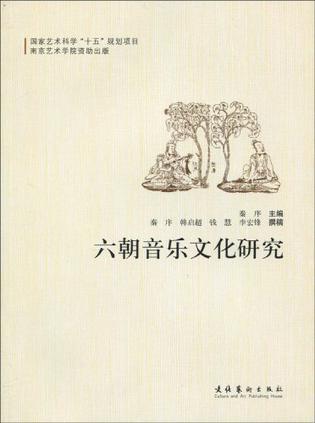
六朝音乐文化研究
《六朝音乐文化研究》内容简介:就六朝的具体情况而言,东吴与东晋、南朝的外部对立力量有所不同。东吴与魏、汉三分天下,是汉末军阀混战的结果,因此东吴是分裂割据政权之一,但根本的文化命脉并未发生危机。东晋、南朝,则与五胡十六国及北朝相对峙。面对北方游牧部族蹂躏毁灭的巨大压力,被迫退守江南以求偏安的东晋,名义上是晋朝的延续,衣冠礼乐多取晋朝,以此体现政治文化的连续性。在少数族人占中原、北方各族持续冲突混融的特殊历史条件下,南朝能够同北朝抗衡对峙,江南遂成为汉文化保存发展的重要地区。华夏文化命脉,得以较完整保存延续于江南,在南方发扬光大,并回流影响北方,这在中华文化史上极其重要。与江左文艺出现的繁荣盛况相比,北方十六国文风衰竭,可谓文化沙漠,百余年间既无卓著之文人,也无可称述之作品。北朝时期,北方少数族政权逐渐走向封建化,北魏孝文帝等大力推进改制和汉化。除依靠永嘉乱后留存北方的部分士族大姓所保留的汉晋文化外,更重要的就是吸收和利用南方文化的北传,北方文艺才呈现上升之势。尽管历史不宜假设,但若没有东晋的偏安和南朝的存在,没有它们与北方各族政权的抗衡对峙,就没有华夏文化正统在南方的保存维系和回流北方,世界四大古老文明之一的中华文明,很有可能在这一危难时刻被倾覆,与其他古老文明~样遭遇灭顶之灾而严重断绝! 另一方面,割据江南的东吴,偏安江左的东晋、南朝,也吸收、发展了南方自古以来的荆楚、吴越等文化遗产。南亚东来的佛教文化,以及各种渠道传来的东亚、中亚、西亚的外来文化,在这里与华夏传统文化发生冲撞和交融。在北方民族文化大混融之际,促使南方在经济文化方面的发展水平也超过北方地区,最终促成华夏文化“正统”的确立。 从音乐文化上讲,作为“九代之遗声”的清商乐,既代表着汉魏西晋等历朝宝贵的音乐遗产,又融合《西曲》、《吴歌》等南方音乐,对后世影响深远,被隋唐尊为“华夏正声”,成为隋唐文化繁荣的重要基础和主干成分之一。因此,尽管六朝音乐文化富有地方特色,南方各朝的艺术创造也丰富、发展了华夏优秀传统,但严格地讲,六朝的音乐艺术不仅仅是一种地方性的音乐文化,也不仅仅是南方六朝文化成果的体现。 -

World Music
World Music draws readers into a remarkable range of historical encounters, in which music had the power to evoke the exotic and to give voice to the voiceless. In the course of the volume's eight chapters the reader witnesses music's involvement in the modern world, but also the individual moments and particular histories that are crucial to an understanding of music's diversity. This book is wide-ranging in its geographical scope, yet individual chapters provide in-depth treatments of selected music cultures and regional music histories. The book frequently zooms in on repertoires and musicians--such as Bob Marley, Dana International, Bartok, and Nusrat Fateh Ali Khan--and attempts to account for world music's growing presence and popularity at the beginning of the twenty-first century. -
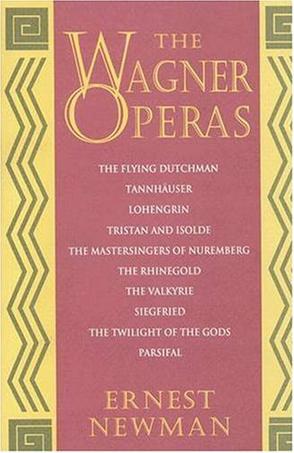
The Wagner Operas
In this classic guide, the foremost Wagner expert of our century discusses ten of Wagner's most beloved operas, illuminates their key themes and the myths and literary sources behind the librettos, and demonstrates how the composer's style changed from work to work. Acclaimed as the most complete and intellectually satisfying analysis of the Wagner operas, the book has met with unreserved enthusiasm from specialist and casual music lover alike. Here, available for the first time in a single paperback volume, is the perfect companion for listening to, or attending, The Flying Dutchman, Tannhuser, Lohengrin, Tristan and Isolde, Die Meistersinger, the four operas of the Ring Cycle, and Parsifal. Newman enriches his treatment of the stories, texts, and music of the operas with biographical and historical materials from the store of knowledge that he acquired while completing his numerous books on Wagner, including the magisterial Life of Richard Wagner. The text of The Wagner Operas is filled with hundreds of musical examples from the scores, and all the important leitmotifs and their interrelationships are made clear in Newman's lucid prose. "This is as fine an introduction as any ever written about a major composer's masterpieces. Newman outlines with unfailing clarity and astuteness each opera's dramatic sources, and he takes the student through the completed opera, step by step, with all manner of incidental insight along the way."--Robert Bailey, New York University -
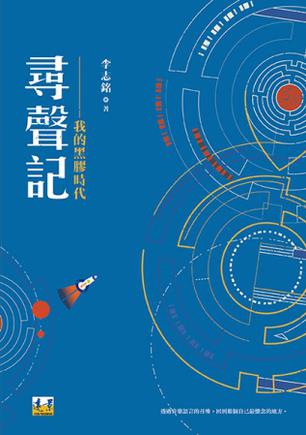
尋聲記: 我的黑膠時代
詮釋記憶、描繪歲月,一般人會怎麼做?可能是收藏一段日記文字,一手隨筆塗鴉,或是一張圖、一片明信片、一本書,當然,也可能可以是──用聲音,用音樂,來為自己的青春在茫茫的時空洪流中尋找座標與定位。 聲音與音樂或許是抽象的、無形的、捉摸不透的,然而李志銘發現,音樂也可以是一具精密的相機鏡頭,攝入栩栩如生、美好又深刻的人生畫面。他傾聽那些黑膠細柔地吞吐出的歌聲,像是火車上的旅客一樣觀望著窗外,看到自己的童年、青春以及時代如水流動,卻又幕幕鮮明。所謂往事再現,即意味著回想起自己曾經熟悉、如今卻再也看不到的地方。他這才意識到,人類對於時間是永不滿足的,唯有不斷追尋聲音的再現,方能找回一種歸屬,或在心中重塑那個屬於自己的年代。於是他透過一張又一張的黑膠、穿過一波又一波的樂音來紀錄生命,並愛著這段追逐、溯訪的過程。 每個人都可以擁有一部自己的尋聲記,用聲音來尋訪自己的記憶,重遇自己的青春,更可以觸摸自己曾擦身而過的時代。 -
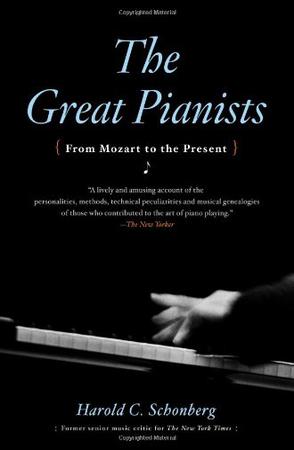
The Great Pianists: From Mozart to the Present
From Mozart’s fabulous legato that “flowed like oil” to Beethoven’s oceanlike surge, from Clara Schumann’s touch “sharp as a pencil sketch” to Rubinstein’s volcanic and sensual playing, The Great Pianists brings to life the brilliant, stylish, and sometimes eccentric personalities, methods, and technical peculiarities of history’s greatest pianists. Pulitzer Prize–winning critic and author Harold C. Schonberg presents vivid accounts of the artists’ performances, styles, and even their personal lives and quirky characteristics— such as Mozart’s intense competition with Clementi, Lizst’s magnetic effect on women (when he played, ladies flung their jewels on stage), and Gottschalk’s persistent nailbiting, which left the keys covered with blood. Including profiles of Horowitz and Van Cliburn, among others, and chapters detailing the playing and careers of such modern pianists as de Larrocha, Ashkenazy, Gilels, Gould, Brendel, Bolet, Gutierrez, and Watts, The Great Pianists is a comprehensive and fascinating look at legendary performers past and present. -
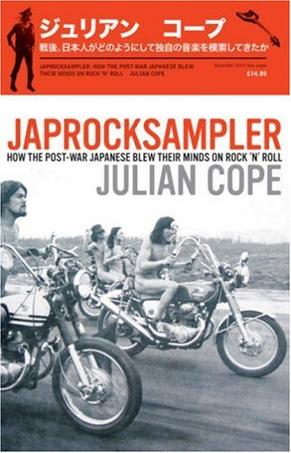
Japrocksampler
Julian Cope, eccentric and visionary rock musician, hip archaeologist and one time frontman of Teardrop Explodes, follows the runaway underground success of his book "Krautrocksampler" with "Japrocksampler", a cult deconstruction of Japanese rock music. "Japrocksampler" reveals what really happened when East met West after World War Two and the mayhem that ensued and is a must for anybody interested in modern music and Japanese culture. It explores the clash between traditional, conservative Japanese values and the wild rock 'n' roll renegades of the 1960s and 70s and tells the tale of the seminal artists in Japanese post-war culture, from itinerant art-house poets to violent refusenik rock groups with a penchant for plane hijacking. The book concludes with enticing reviews of Julian's Top 50 Jap Rock albums.